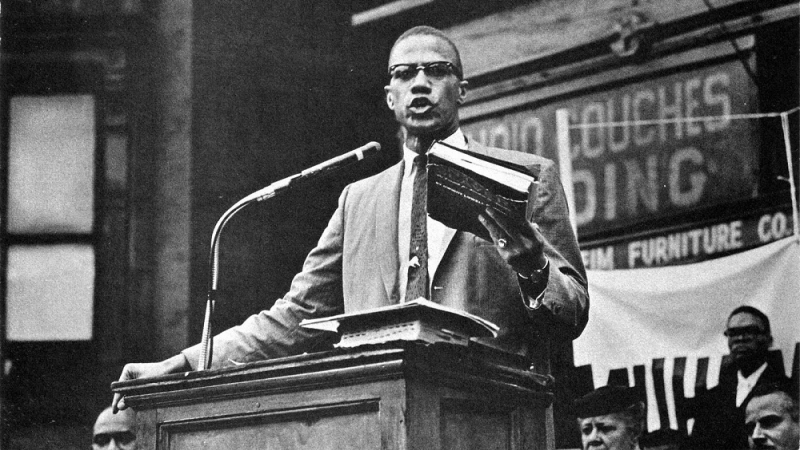Malcolm X’s Pilgrimage to Africa
Malcolm X’s Pilgrimage to Africa Changed His Vision of the World
In the spring of 1964, Malcolm X—already one of the most influential and controversial figures of the 20th century—embarked on a journey that would forever
reshape his worldview and the global dimensions of the Black liberation struggle. His time in Africa, especially in Ghana, was not just a political statement
but a deeply personal pilgrimage. It was a homecoming to the land of his ancestors, a spiritual renewal after his pilgrimage to Mecca, and a bold attempt to
connect the struggle of African Americans with the broader decolonization efforts across Africa.
On May 10, 1964, after his return from the Hajj pilgrimage, he landed in Accra, Ghana, for what would become a critical week-long visit, just nine months before his assassination.
This trip was not merely symbolic. It was strategic, ideological, and transformational. Malcolm X’s time in Ghana and his broader African tour provide a profound
lens through which to understand his political evolution, his embrace of Pan-Africanism, and his legacy that continues to inspire millions across the African diaspora today.
From Malcolm Little to El-Hajj Malik El-Shabazz: The Man Behind the Message
Born as Malcolm Little on May 19, 1925, in Omaha, Nebraska, Malcolm X’s early life was marked by instability and racial terror. His father, Earl Little, was a Baptist minister
and ardent supporter of Marcus Garvey’s Universal Negro Improvement Association (UNIA), and its ‘Back to Africa” movement. Earl was reportedly murdered by white supremacists in
1931. His mother, Louise, suffered a mental breakdown after years of hardship, and Malcolm’s adolescence unfolded in a cycle of foster homes, petty crime, and ultimately incarceration.
While in prison, Malcolm experienced a radical transformation. He educated himself, embraced Islam through the Nation of Islam, and adopted the name Malcolm X to reject his “slave name”
and the loss of his African heritage and the name of his forebears. Upon his release, he became a national spokesperson for the Nation of Islam and a fearless critic of racism, advocating
for Black self-reliance, discipline, and separation from white society.
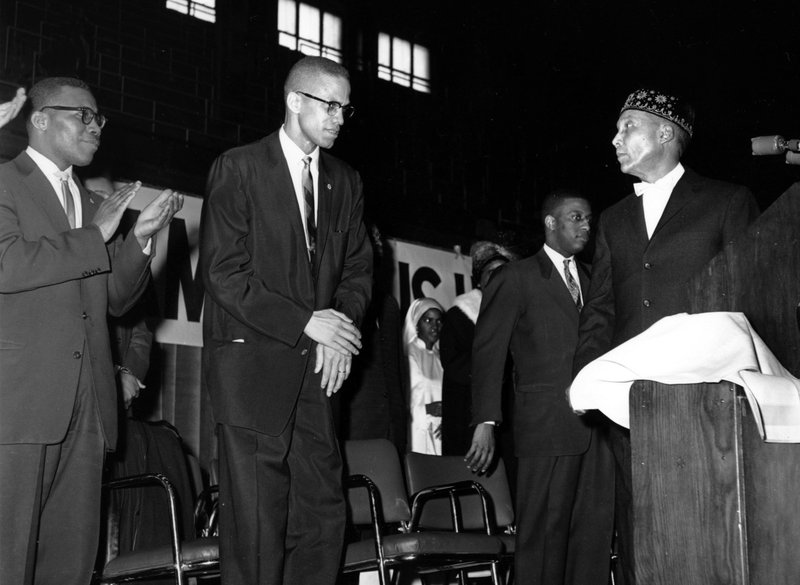
Figure 1: A deferential Malcolm X with Nation of Islam founder, Elijah Muhammad, Feb. 26, 1961
In the 1950s and 1960s, Malcolm X emerged as one of the most potent and uncompromising voices in the fight for Black liberation in the United States. He electrified audiences
with his fiery rhetoric, fierce critique of white supremacy, and unwavering call for Black self-determination.
In contrast to other civil rights leaders who advocated nonviolence and racial integration, Malcolm championed Black pride, separation from white society, and the right to self-defense.
His bold leadership inspired a generation of African Americans to reject passive resistance and embrace a more assertive stance rooted in dignity and empowerment.
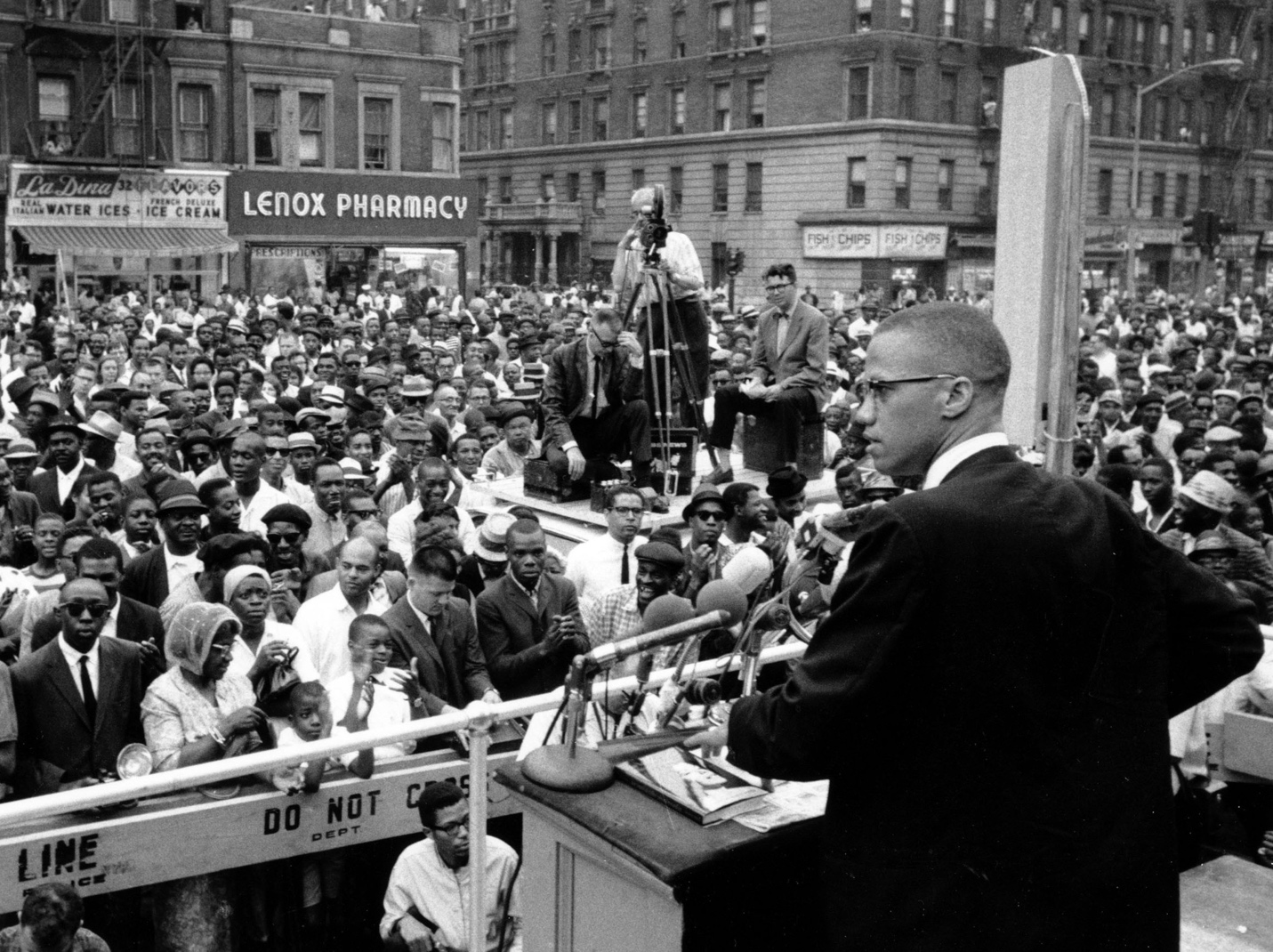
Figure 2: Malcolm X addresses a rally in Harlem in New York City on June 29, 1963
By 1964, however, Malcolm had grown disillusioned with the Nation of Islam’s rigid structure and reluctance to engage with broader global struggles. That same year, he formally
broke ties with the organization and embarked on a pilgrimage to Mecca—a transformative journey. Witnessing Muslims of all races worshipping together profoundly reshaped his worldview.
Upon his return, Malcolm adopted a more inclusive and internationalist perspective, shifting from Black nationalism to Pan-Africanism.
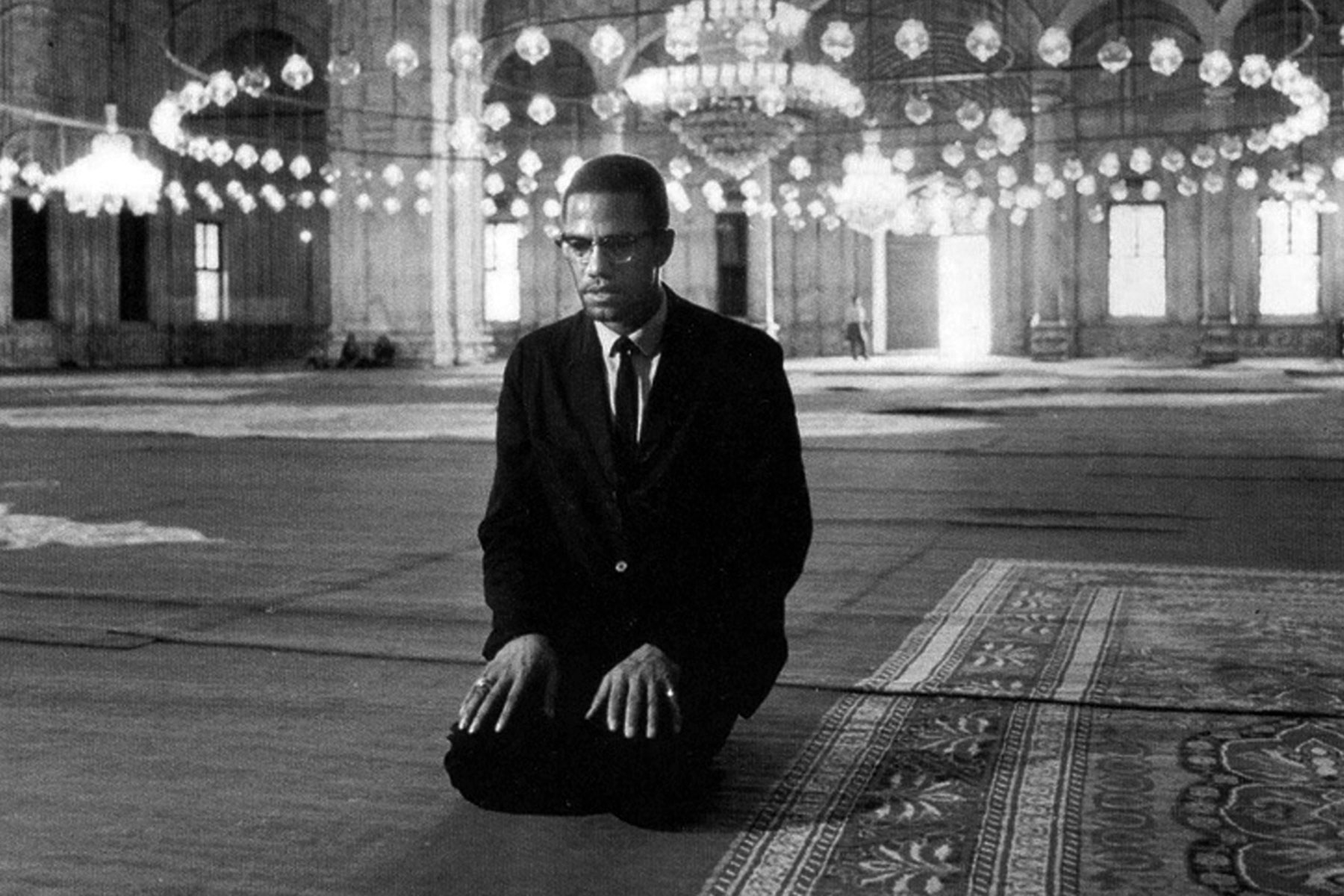
Figure 3: In 1964, Malcolm X traveled to Mecca, Saudi Arabia, where he took part in the Hajj
He founded two new organisations: Muslim Mosque, Inc. and the Organisation of Afro-American Unity (OAAU), inspired by the Organisation of African Unity (OAU).
Through the OAAU, he began linking the African American struggle for freedom with global liberation movements across Africa and the diaspora.
Malcolm’s evolving ideology marked a significant transition in his political thought—from a focus on racial separatism to a broader vision of global solidarity and human rights.
The African Odyssey: A Continent that Transformed a Revolutionary
Malcolm's worldview broadened significantly after completing the Hajj to Mecca and embarking on his multi-nation African tour. Instead of focusing solely on the African American struggle
for racial justice in the United States, he became a Pan-Africanist with a vision to unite Black people worldwide to confront white supremacy, colonialism, and neo-imperialism together.
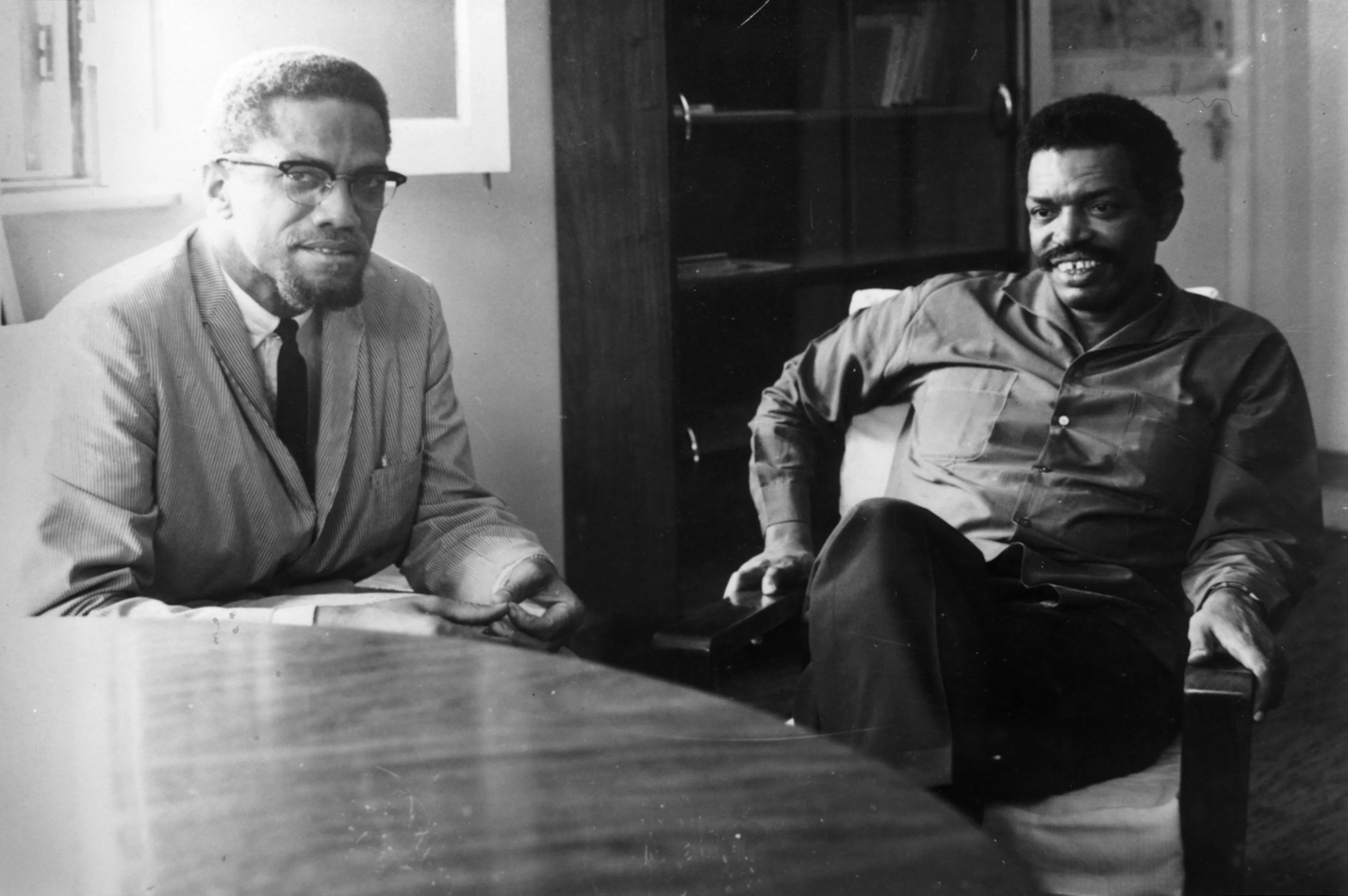
Figure 4: Malcolm X sits with General Abdulrahman Mohamed Babu, leader of the Zanzibar Revolution, on Nov. 23, 1964
His Pan-African tour included visits to:
>Egypt, Saudi Arabia, and Sudan, where his embrace of orthodox Islam deepened.
>Ethiopia and Kenya, where he met nationalists and independence fighters.
>Algeria and Morocco, where he held dialogues with revolutionary leaders.
>Ghana, the first sub-Saharan African country to gain independence and the home of Dr. Kwame Nkrumah, a leader of the Pan-African movement.
Malcolm met with these leaders and intellectuals, engaging in dialogues to build bridges between African liberation movements and the civil rights and Black Power movements in the U.S.,
furthering his vision for a global Pan-African coalition.
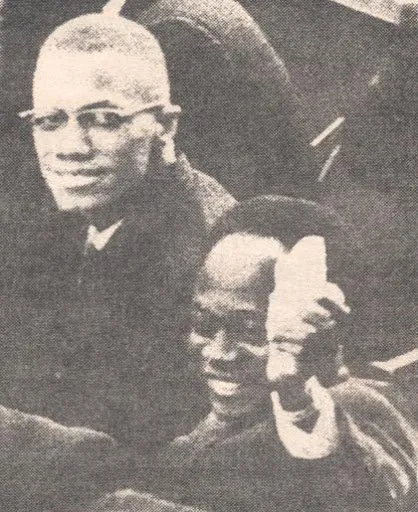
Figure 5: Malcolm X sits close to Kwame Nkrumah at a rally for the American Committee in Africa in New York
Returning with a Global Mission
He began to articulate a new, refined ideology that fused:
>Pan-Africanism – connecting the African struggle with that of African Americans.
>Human rights advocacy – framing U.S. racism as a violation of global human rights standards.
>International diplomacy – lobbying African nations and the Non-Aligned Movement to stand with African Americans.
>Cultural reconnection – encouraging Black Americans to explore Africa and reconnect with their ancestral homeland.
On February 21, 1965, Malcolm X was assassinated in Harlem while delivering a speech at the Audubon Ballroom. He was just 39 years old.
Though his life was tragically short, his message endures. His journey to Africa remains a seminal chapter in the story of Pan-African unity, and his call
for Black Americans to reconnect with the Motherland still resonates.
Explore the Motherland with African Connections
At African Connections, we've curated Return to the Motherland Tours for over twenty years, focusing on our African heritage. Follow in Malcolm X's footsteps and travel to Africa.
We offer amazing travel experiences in Ghana, Ethiopia, Senegal, Benin, Egypt, South Africa, Tanzania/Zanzibar, Kenya, and beyond.
Reserve your seat today and prepare to be Amazed!
